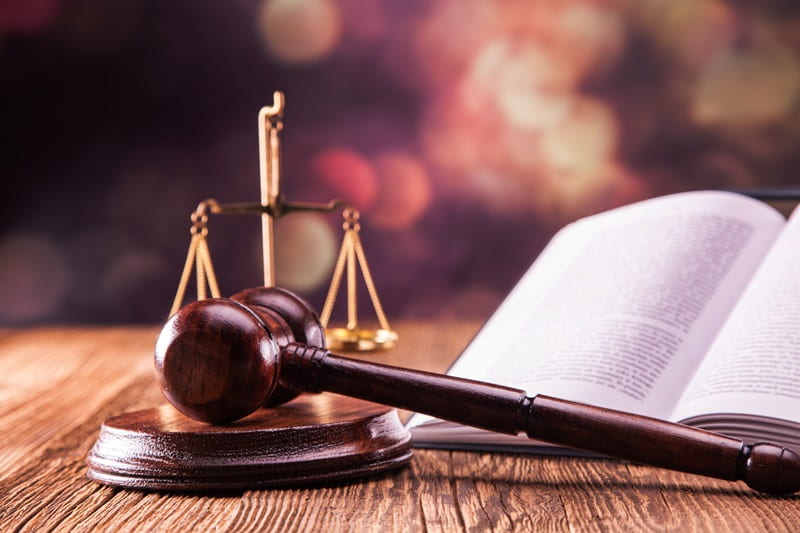MAREVA INJUNCTION ONTARIO

In Ontario’s civil procedure, a Mareva injunction, also referred to as a freezing order or Mareva order, serves as a crucial mechanism for plaintiffs and applicants seeking to prevent the dissipation of a defendant’s assets prior to judgement. When properly granted, such an interlocutory injunction ensures that the defendant cannot conceal, transfer, or remove property, thereby protecting the plaintiff’s potential right to recovery.
Given the ex parte nature of these motions and their significant impact on parties’ rights and property, Ontario courts exercise considerable caution in granting such an injunction. The court must be satisfied that there is a serious issue to be tried, that the defendant owns assets within the court’s jurisdiction, and that there is a real risk those assets may be dissipated or moved beyond the reach of the court. In doing so, it frustrates any future ability to pay a judgement.
What is a Mareva Injunction?
A Mareva injunction is an interlocutory remedy that prohibits a defendant from disposing of or transferring assets before a final judgement is rendered. These orders are often sought ex parte, meaning without prior notice to the defendant, in order to prevent immediate dissipation. Courts across common law jurisdictions treat Mareva injunctions as extraordinary remedies, granted only in limited and justified circumstances to protect the enforceability of a future judgement.
To obtain a Mareva injunction in Ontario, the applicant must provide compelling relevant facts through affidavit evidence. The court will consider whether the applicant has a strong legal process underway and whether the balance of convenience favours the issuance of the court order. Ultimately, the aim is to ensure that the defendant does not act to render a judgement meaningless by transferring assets out of reach before the litigation concludes.
When Can a Freezing Assets Order Be Granted?
To obtain such an order in Ontario, a plaintiff or applicant must demonstrate several requirements under the rules of civil procedure:
Strong Prima Facie Case Supported by Material Facts
First, the plaintiff or applicant must demonstrate a strong prima facie case, meaning a credible and well-founded legal claim supported by substantive and material evidence. Courts require more than speculative allegations; rather, multiple points of material fact must support the underlying claim before a freezing order will be considered.
Appearance of Right and Serious Risk of Dissipation
The court must be persuaded that the plaintiff has a legitimate legal claim and that there exists a serious risk that the defendant may dissipate, conceal, or remove assets. Such risk raises the prospect of irreparable harm to the plaintiff if assets are rendered unavailable for enforcement of a future judgment.
Risk of Irreparable Harm
The plaintiff must show likelihood they will suffer irreparable harm that cannot be adequately compensated through monetary damages alone. A freezing order is justified to prevent such irreparable harm when one suspects the defendant’s assets may vanish.
Balance of Inconvenience
The court must weigh the hardship to the defendant of having assets frozen against the potential harm to the plaintiff if such an order is denied. The balance of inconvenience test ensures fairness before the court will grant an oppressive injunction.
Urgency and Ex Parte Application
Given the urgency often involved in such matters, Mareva injunctions are frequently sought on an ex parte basis. In such cases, the moving party is under a strict duty of full and frank disclosure, which includes disclosing all material facts to maintain procedural fairness and judicial integrity.
How Courts Decide to Grant Mareva Injunctions
In determining whether to issue a Mareva injunction, the court will examine several key considerations:
- Whether there is a negligence or civil fraud claim, supported by sworn affidavit or affidavit evidence clearly outlining material fact that justifies such an order;
- Whether there is serious risk the defendant’s assets will be moved or hidden, justifying the protective injunction;
- Whether the moving party will suffer irreparable harm if injunction is not granted, because monetary damages later might be unattainable;
- Whether the balance of convenience favours the plaintiff over the defendant;
- Whether urgency requires immediate ex parte relief.
If satisfied, the court will grant the freezing order, freezing specified assets so the plaintiff can secure potential judgement recovery.
Appearance of Right
A plaintiff must show a strong prima facie case that they have a substantive claim. Even though it’s preliminary, the moving party must persuade the court that there is a real prospect of success at trial. Minimal speculation is insufficient as multiple material fact points are needed. Only then will the court consider granting a Mareva injunction.
Irreparable Harm
The key threshold is potential irreparable harm: would the plaintiff suffer irreparable harm without the injunction? If the defendant might dissipate assets before judgement, the plaintiff’s remedy may evaporate. Courts are clear: risk of losing enforcement potential is enough when compensation in money would be meaningless in practice.
Balance of Inconvenience
Even if irreparable harm is shown, the court must weigh the inconvenience of freezing defendant’s assets. The defendant may be prevented from using funds for legitimate purposes. The balance test evaluates who is more harmed by such an order, and ensures fairness before granting it.
Urgency and Ex Parte Applications
Where urgency is present and there is a real risk that notice will trigger immediate asset dissipation, the application may proceed ex parte. In such cases, the moving party is required to meet a high threshold of disclosure, including:
- Full and frank disclosure of all material facts;
- Disclosure of information adverse to the moving party’s interest;
- Transparency about the scope and effect of the proposed order.
This enables that the court is not misled and that procedural fairness is upheld even in the absence of the responding party.
Benefits of Obtaining a Mareva Injunction
Once the court has granted the injunction, the plaintiff gains powerful strategic advantages in preserving the integrity of the litigation process and protecting their main claim:
Protecting the Right to Recovery
A freezing order safeguards the plaintiff’s right to collect on a future judgement by preserving the defendant’s assets within the court’s legal jurisdiction, preventing the dissipation of assets during ongoing litigation. This ensures that a favourable ruling does not become hollow due to the absence of recoverable assets.
Minimizing Financial Risks
By freezing the defendant’s assets, the court mitigates the risk of asset transfers, offshore movements, or concealment. This minimizes the likelihood of dissipation of assets, thereby maintaining the enforceability of any future recovery and protecting the plaintiff’s financial interests.
Enhancing Settlement Leverage
Possession of a Mareva injunction often strengthens the plaintiff’s negotiating position. The potential consequences of the injunction may prompt early settlement or voluntary payment, helping to avoid prolonged litigation. The court must also consider whether granting the order will cause less harm to the defendant than denying it would cause to the plaintiff, ensuring a fair balance between the parties’ interests.
Alternatives to Injunctions
Where a Mareva injunction is not appropriate or granted, litigants may consider alternative remedies, such as:
- Applications for security costs;
- Asset preservation orders under other statutory provisions;
- Enforcement tools such as garnishments or receivership appointments;
- Interim measures to protect the plaintiff’s financial interests pending judgement.
However, few remedies offer the immediacy and effectiveness of a Mareva injunction in pre-judgement asset protection.
Proceedings and Consequences of Mareva Injunctions
When filing the application, the moving party must comply with Rules of Civil Procedure, submitting detailed affidavits outlining material fact, evidence of irreparable harm, a serious risk of dissipation of assets, and a reasonable foresight that a judgement will be obtained. The applicant must also establish a strong main claim and demonstrate that the balance of convenience, including the prospect of less harm, favours granting the order.
The court may impose conditions such as undertakings for damages, limits on the value and types of assets frozen, and security. In some instances, the court may also consider the rights of third parties, such as a secured creditor, when tailoring the scope of the injunction to avoid unjust interference with legitimate claims.
Once such an order is granted, there are procedural obligations such as public filing of the injunction, notification to the defendant once the ex parte period ends, and strict compliance with any undertakings given by the applicant. Courts expect transparency and good faith throughout.
Failure to comply with a freezing order may result in serious consequences, including findings of contempt of court, monetary sanctions, enforcement measures, or adverse costs awards. Ontario case law confirms that courts take violations of Mareva injunctions seriously and may use their full endorsement powers to uphold the integrity of the legal process.
How Our Commercial Litigation Lawyers Can Help
At our Toronto law firm, our civil and commercial litigation team is highly experienced in obtaining and defending Mareva injunctions in Ontario’s jurisdiction:
- We assess whether you have a strong prima facie case and identify all relevant material fact;
- We draft affidavits with full and frank disclosure of every key fact, and ensure fair disclosure so that the court can rely on a transparent record;
- We evaluate risk, urgency, and probability you will suffer irreparable harm if assets are dissipated;
- We submit ex parte or noticed motion applications, seeking a freezing order tailored to secure the right assets;
- If the court grants the injunction, we handle compliance, drafting undertakings, and coordinate enforcement or settlement leverage;
- We defend against misuse, helping defendant clients if allegations are overstated or unsupported by material fact;
- We guide you through process up to final judgement, ensuring funds remain available for recovery and justice.
Work with Experienced Mareva Injunction Lawyers in Toronto
Asset protection during litigation is critical. Whether you are seeking to obtain a Mareva injunction to freeze a defendant’s assets or responding to one issued against you, working with an experienced commercial litigation lawyer in Toronto is essential. Our firm is known for providing practical, strategic legal advice in high-stakes matters involving injunctive relief, fraud, asset recovery, and complex civil disputes.
We understand the urgency and evidentiary demands of Mareva injunctions and guide clients through every step of the process, from emergency ex parte motions to enforcement and compliance, including post-trial actions once a judgement is obtained.
If the court finds that the criteria for a Mareva injunction are met, including a serious issue to be tried, risk of dissipation, and assets within the court’s jurisdiction, the resulting order can provide powerful protection. We help ensure that your rights are preserved and that any injunction sought or challenged is grounded in solid legal and factual foundations.
Why Choose Chand & Co.?
We are a results-oriented team of civil and commercial litigators with deep experience handling Mareva injunctions and related interlocutory relief across Ontario. Our lawyers advise on injunction strategy, evidence preparation, disclosure obligations, and courtroom advocacy with precision and clarity. Whether you are protecting your legal rights or defending against an improper freezing order, we are committed to safeguarding your interests and delivering effective, timely results.
case evaluation











